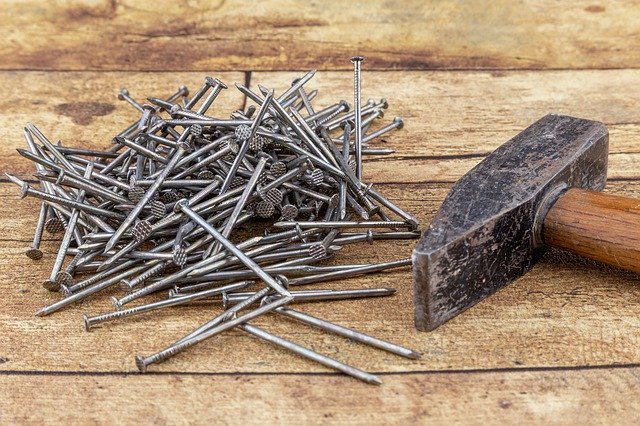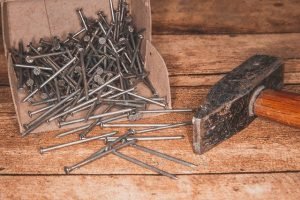
If you are a homeowner, then you know the importance of being safe. Nothing is worse than seeing your house harmed or seriously damaged. Read the following article to learn how you can secure your home safe.
A good security system has other features than sounding the alarm during a break-in. Many can be set for sounding their alarm if anyone enters your home. This is great for burglars; parents that have small children can also use it as a valuable tool to know when their kids open or close doors.
Protect your spare key by using your dog. If your dog lives outside or is able to come and go through a dog door, this is a viable idea. Attach the key to your dog’s collar, and it will be handy if you ever need a spare.
It’s important to shop for your home.Get quotes from no less than three companies before making a decision.
Don’t talk about your vacations on the web. It’s natural to be excited about your trip, but you could alert thieves to an empty home that they can easily break into.
Hiding places for spare keys must be chosen with extreme care and caution. The doormat is too obvious of a place to hide it, as robbers will look there first. Try hiding your key on a lawn statue or in a potted plant.
These items have a fire during the hot months. Clear up your yard often if you want to prevent a fire from starting.
Keeping your car inside will deter intruders from vandalizing it. This can also keep people from home.
Your friends may have some great advice for choosing the right company. Others may have had bad and good experiences that they share with you so that you may be able to save time and stress. Make broad inquiries so that you are able to make a well-informed decision.
Talk to the people who live in your neighbors.
Don’t forget skylights when securing your home. Skylights are great for making a home brighter, but they are also tempting entryways for crooks. Be sure that skylights for your home are durable and reliable.
Don’t let strangers enter your home. Even if the person has a compelling story, needs help or has something to sell, they should not be given access. These people might want to actually do you harm or could be casing out your house for a future break-in.
Walls are the perfect place to hide things. You can hide small valuables within your walls.You can use phone jacks or other device that is not being used.You put in a fake unused in your home.
Use the spaces in your walls as hiding spaces. You don’t need to cut out of the way. Many spots are already accessible for this purpose.
Keep your car in your garage if you have one. Keeping your car inside will deter thieves from stealing or vandalizing it. This will also make it more difficult for burglars to track when you away from home.
Hide your home security system’s wiring. Intruders can easily disable a system if they see the wires. This can make you much safer.
Replace all the locks in a new house.Regardless of how trustworthy you consider the last owners to be, you never know someone’s true intentions.
The walls are a perfect hiding place. You can hide small valuables in your walls. Just access unused switch plates, outlets or phone jacks. If you have no unused plates, you can put in a fake one.
Replace rotten wood surrounding your door frame that is rotting. An intruder could pry away that rotted wood and enter your home. Replace rotting wood that is starting to rot with fresh wood to keep your home safer.
Flashlights are essential since they let you move around if an emergency. Teach everyone in your home to use flashlights.
Keep valuables out of sight of windows. Large windows let in light and give you a great view outside, but that works both ways. Blinds are a great way to allow the light in, without allowing people to see in at the same time.
If your home isn’t new, you should first change your locks. The person who used to live there may still have made some copies of the key. You can install new locks yourself so that you know you have the only one who has a key.
It is very common for thieves to present themselves as representatives of a company reps in order to gain access to your home. This proves rather dangerous for both your belongings and your family. Be very careful with who you want to avoid danger.
If you’ve just gotten a home, replace every lock. Regardless of how trustworthy you consider the last owners to be, neither you nor they can be sure that there aren’t others out there with keys to those locks. Keep in mind that other families might have lived with them, too.
Consider a surveillance system. Both hidden and visible video cameras can help keep your home. Visible cameras have a deterrent effect, but if they disable the cameras that they can see, a camera that is hidden will keep capturing footage. A lot of surveillance cameras could be accessed through your phone, letting you check on your house when you’re away.
Your dog is a great tool for protecting your best home security weapons.Dogs are protective of turf and bark when something is wrong. It doesn’t need to be a big tough dog.Even small dogs can ward off intruders with enough noise.
Make sure all the wood around your doors is in great shape. The rotten wood will be simple to remove, allowing a thief access to your home. Find a reliable contractor who can replace the door frame for you.
You can have key-less locks without keys that need a code. You can even install them yourself or you can hire a home security firm.
Don’t hide your keys in obvious hiding place. It is easy to find fake rock. The first place a person will likely look is under the doormat. A better key holder than an inanimate object. If you can’t, find a spot that’s not obvious.
When a security company wants in your home ask for an ID and see if they’re in uniform. It is simple for a thief to pose as a representative of your home security company as a means of gaining access to your house. This can be extremely dangerous to your home and loved ones. Act cautiously to avoid potential dangers.
A home alarm might be a good investment if police are notified when it sounds.The only way to ensure this is to use a system that the police for you. You cannot depend on your neighbor to contact the police.
You must always make sure your second story windows are locked. Many people don’t think criminals will check them. This could not the case. Criminals are aware of this is a vulnerable area in home security.
Whenever you are landscaping your home, you should consider safety. Windows should be free from obstructions like trees, shrubs and fencing. Keeping these features free of vegetation robs would-be burglars of concealment and hiding places. Plan your greenery and shrubbery for areas away from the direct path to your home to add beauty while still keeping your house safe.
When it comes to locks, your home isn’t secure. A deadbolt with keys on both inside and outside is one of the door is best.
The wiring on your home can be easy pickings for burglars or thieves. The copper in components and wiring is being sold for a good price.Conceal the wiring of your home so intruders cannot remove it or you with a big repair bill.
Have a home security company come to your house and come up with a system that best suits your needs. Each situation is different. You’ll get the best protection by using a company that can tailor a plan to your requirements.
Always change your locks on a new home. This is correct regarding home purchases and rentals, so ask your landlord to switch the lock or hire a locksmith to do it yourself, or do it on your own.
As you’ve read, keeping your house safe doesn’t need to be hard. You simply need to understand how home security works. Put the ideas mentioned here into practice for a safer future. Don’t neglect these tips because you could use them to ensure your house’s safety.
Consider your security risk and safety needs before purchasing home security systems. Some systems might not be adaptable to your situation. Some neighborhoods would feel be safe enough if you knew basic self defense or had a large dog. Before you sink a lot of money into your home’s security, make sure that you’re properly addressing your particular risks.



